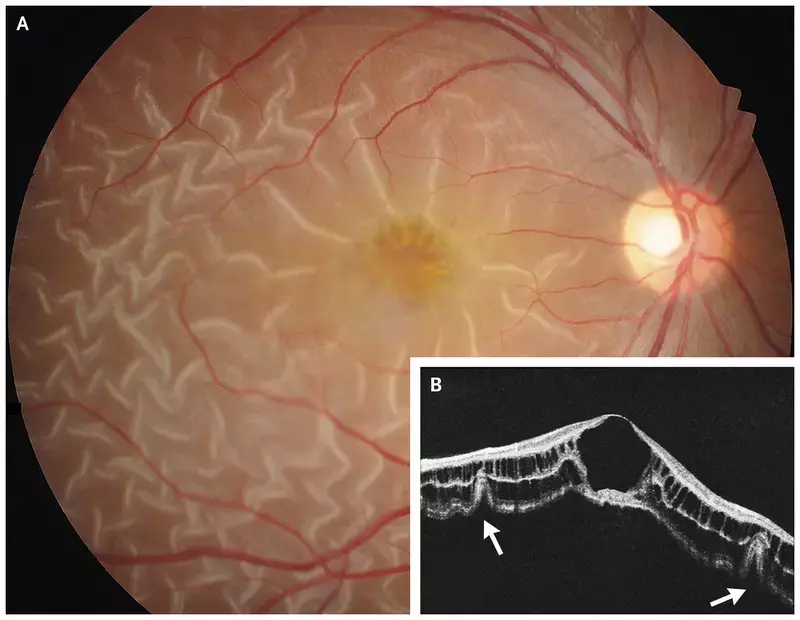- Home
- Medical news & Guidelines
- Anesthesiology
- Cardiology and CTVS
- Critical Care
- Dentistry
- Dermatology
- Diabetes and Endocrinology
- ENT
- Gastroenterology
- Medicine
- Nephrology
- Neurology
- Obstretics-Gynaecology
- Oncology
- Ophthalmology
- Orthopaedics
- Pediatrics-Neonatology
- Psychiatry
- Pulmonology
- Radiology
- Surgery
- Urology
- Laboratory Medicine
- Diet
- Nursing
- Paramedical
- Physiotherapy
- Health news
- Fact Check
- Bone Health Fact Check
- Brain Health Fact Check
- Cancer Related Fact Check
- Child Care Fact Check
- Dental and oral health fact check
- Diabetes and metabolic health fact check
- Diet and Nutrition Fact Check
- Eye and ENT Care Fact Check
- Fitness fact check
- Gut health fact check
- Heart health fact check
- Kidney health fact check
- Medical education fact check
- Men's health fact check
- Respiratory fact check
- Skin and hair care fact check
- Vaccine and Immunization fact check
- Women's health fact check
- AYUSH
- State News
- Andaman and Nicobar Islands
- Andhra Pradesh
- Arunachal Pradesh
- Assam
- Bihar
- Chandigarh
- Chattisgarh
- Dadra and Nagar Haveli
- Daman and Diu
- Delhi
- Goa
- Gujarat
- Haryana
- Himachal Pradesh
- Jammu & Kashmir
- Jharkhand
- Karnataka
- Kerala
- Ladakh
- Lakshadweep
- Madhya Pradesh
- Maharashtra
- Manipur
- Meghalaya
- Mizoram
- Nagaland
- Odisha
- Puducherry
- Punjab
- Rajasthan
- Sikkim
- Tamil Nadu
- Telangana
- Tripura
- Uttar Pradesh
- Uttrakhand
- West Bengal
- Medical Education
- Industry
Rare case of X-Linked Retinoschisis presents as retinal detachment

Dr Yunjeong Lee and Dr Baek-Lok Oh at Seoul National University Hospital, Seoul, South Korea have reported a rare case of X-Linked Retinoschisis presents as retinal detachment. The case has appeared in the New England Journal of Medicine.
X-linked Retinoschisis or X-Linked Juvenile Retinoschisis is a rare congenital malformation of the retina caused by mutations in the RS1 gene with a prevalence of about 1 in 15,000 to 30,000, is the main cause of juvenile macular degeneration. It is characterized by symmetric bilateral macular involvement beginning in the first decade of life.
Patients typically present at school age complaining of poor vision, although they may present in infancy with nystagmus, strabismus, hyperopia, foveal ectopia, haemorrhage, or retinal detachment. However, there is wide variability in disease severity, ranging from normal vision to legal blindness, even among patients carrying the same mutation. X-linked retinoschisis may also present as spontaneous vitreous haemorrhage or retinal detachment. These complications occur commonly and are the main causes of complete vision loss.
In the present case a 19-year-old man with X-linked retinoschisis presented with a 3-day history of worsening vision in his right eye. He had received a diagnosis of X-linked retinoschisis at 5 years of age when reduced visual acuity and macular cystic degeneration were noted in both eyes. At the current visit, the visual acuity was 20/70 in the right eye and 20/40 in the left eye. Examination of the right fundus showed prominent retinal corrugations radiating from the fovea and normal vasculature .
Optical coherence tomography revealed a full-thickness retinal detachment and corrugation of deep layers of the retina (Panel B, arrows), as well as diffuse retinoschisis. X-linked retinoschisis is an inherited retinal disease that occurs primarily in males. Because no retinal tears were observed, the patient was treated nonsurgically. After a 2-week course of daily oral acetazolamide, the retinal detachment resolved. The patient's visual acuity at follow-up had returned to a baseline of 20/40 in both eyes.
For further reference log on to:
Dr Kamal Kant Kohli-MBBS, DTCD- a chest specialist with more than 30 years of practice and a flair for writing clinical articles, Dr Kamal Kant Kohli joined Medical Dialogues as a Chief Editor of Medical News. Besides writing articles, as an editor, he proofreads and verifies all the medical content published on Medical Dialogues including those coming from journals, studies,medical conferences,guidelines etc. Email: drkohli@medicaldialogues.in. Contact no. 011-43720751


